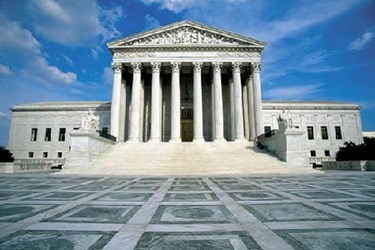Supreme Court Decision Not To Review Swipe Fee Ruling

By Christine Kern, contributing writer

Decision Disappoints Retailers, Hoteliers, and Restaurant Owners
The National Retail Federation has expressed disappointment over the Supreme Court’s decision not to review the appellate court ruling concerning the 2011 cap set on debit card swipe fees. According to the National Retail Federation, swipe fees are too high, leaving the merchant and the consumer to pay far more than they should. Additionally, “fee-hungry banks” will continue to take advantage of the system to collect “unearned profits that ultimately come out of consumers’ pockets.”
The appeal was originally brought to the court last year by the NRF, the National Association of Convenience Stores, the Food Marketing Institute, the National Restaurant Association, NRF member Boscov’s Department Store, and NACS member Miller Oil Co.
The decision by the Supreme Court not to hear the appeal effectively puts an end to the legal effort to counter the Federal Reserve’s overinflated debit swipe fees. The NRA has maintained that these fees violate the 2010 Durbin Amendment, which called for fees that are “reasonable and proportional” to the total cost of a transaction. Initially, the Fed proposed a 12-cent fee cap, but in a subsequent final rule on debit swipe fees they increased the cap to 21 cents per transactions.
“The court’s decision is disappointing because it leaves merchants and their customers paying far more than intended by Congress,” NRF Senior Vice President and General Counsel Mallory Duncan expressed in a statement.
“Federal agencies have flexibility in implementing our nation’s laws, but do not have the discretion to blatantly ignore the wishes of elected officials and the clear language of the statute. The court’s ruling means retailers will keep paying billions of dollars more than they should, and that fee-hungry banks will continue to rake in unearned profits that ultimately come out of consumers’ pockets. We will continue to press the issue.”
However, Duncan asserted, “Banks will benefit from this ruling but the battle over swipe fees isn’t over. There is still litigation pending on credit card swipe fees, and policymakers continue to be concerned by the anti-consumer and anti-competitive practices of the card industry.”
Swipe fees are absorbed by merchants who accept debit cards, and it constitutes a significant expense for restaurants and retailers, particularly on smaller-ticket items. According to research conducted by the Federal Reserve, the swipe fee also is substantially higher than the actual cost of processing a transaction; 90 percent of debit-card transactions cost less than two cents to process.
“We are disappointed in the Supreme Court’s decision not to hear our appeal,” said Scott DeFife, senior vice president of policy and government affairs for the National Restaurant Association. “Inflated swipe fees are gouging restaurant operators and the business community at large. We will continue to fight for a solution and hope the Federal Reserve will exercise its existing authority to reconcile this and ensure the major card brands cannot continue to levy exorbitant debit card fees on restaurateurs nationwide.”
